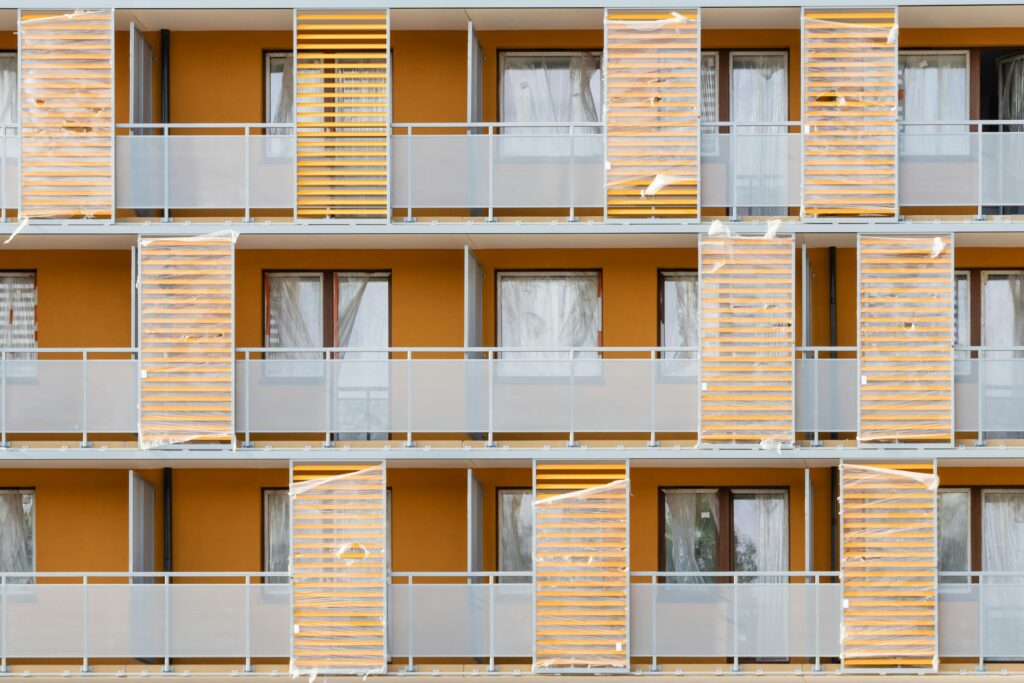Do I Need Landlord Insurance?

Estimated reading time 7 minutes
Being a landlord can be a stressful and expensive time. With property maintenance and the risk of poorly behaved tenants to consider, it’s no wonder many landlords look for ways to protect their investment from excessive costs.
Landlord insurance is one such way to do this. Perhaps surprisingly, you don’t actually need landlord insurance though. It’s not even a legal requirement. However, without it, you could find yourself facing some costly bills if something was to go wrong.
Am I required to get landlord insurance?
No, you can get by without having landlord insurance, however, most buy-to-let lenders will insist on you have a landlord insurance policy in place before granting you a mortgage. You could avoid landlord insurance altogether and opt for a standard home insurance policy, but these don’t cover any aspect of letting a property to tenants and therefore, could see you having to pay out more than you had hoped in the event of a claim.
What does landlord insurance cover?
Each policy may have slightly different features, some available as “bolt-ons” to a landlord specific policy, others coming as standard. Included either as part of the policy or as added features, you would normally find the following included in a landlord insurance policy:
- Unpaid rent
- Vacant periods between tenants
- Damage to furniture, carpets and curtains
- Fire
- Theft
- Flooding
- Intentional damage done by tenants
- Accidental damage done by tenants
- Repairs to boiler
This list is certainly not exhaustive, and it would be advised you speak to several insurance providers before committing to a particular policy. Some may offer more favourable terms or have specific elements of coverage you are seeking.
What doesn’t landlord insurance cover?
In most cases, landlord insurance will not offer protection against:
- General wear and tear
- Damage caused by animals. Pet specific coverage may be available, but pest related incidents will remain uncovered
- Tenants’ personal belongings
Much like what landlord insurance covers, what it doesn’t cover will also be specific to each policy. As a result, you should carefully check any policies to see if particular coverage is not featured at all.
How much will landlord insurance cost?
It would be hard to put a specific price on landlord insurance. A host of variables mean the price could change from property to property.
Areas with higher property prices are likely to see higher landlord insurance costs than those with lower house prices. At the same time, location comes into play too. An area with higher crime levels, for example, may see premiums set a little higher.
Furthermore, the level of cover required may vary from landlord to landlord as well. What is considered sufficient coverage for one property, may not be enough for a landlord at another.
It would always be advised to get approximately 3-5 quotes to get an estimate of the price you are likely to pay. However, as a guide, £12-£15 per month should secure you a decent policy.
It is also worth considering how you will pay for it. An annual payment often works out cheaper than monthly instalments.
How can I make landlord insurance cheaper?
If you have had a few quotes already and things are looking expensive, look at tweaking your tenancy before letting the property out. A few changes may alter the pool of people interested in renting the home and help bring your prices down. For example, you could:
- Have a strict vetting policy for tenants – Look at their job stability and earnings. You’ll get a good idea of the guarantee of rent payments. Also learn more about them as a person, do they want late nights and lots of parties? Or are they looking for a quiet life and plan to live alone? Character traits could determine how many claims are made!
- Minimise the amount of furniture you supply – Less furniture of your own means fewer items to cover. Fewer items to cover means a cheaper policy.
- Refuse pets – In many cases, pets are not an issue, but some can be troublesome. Insurers will see them as an increased risk factor and hitch the premiums up a little.
- Keep the home occupied – The more often the property is occupied, the smaller the chance of a break in. This gives insurers a little more confidence.
- Add security features- If you can add CCTV, an alarm system or better locks, an insurer will see you are putting measures in place to reduce the potential for theft and offer a cheaper policy.
What insurance do I need as a landlord?
There is no one-size fits all landlord insurance policy. Each policy is actually made up of a series of specific policies relevant to buy-to-let properties. This means you can tailor the insurance to your needs. Building insurance is a must. After that, you can start adding extras. It is recommended you incorporate landlord liability insurance, contents insurance and the rental guarantee insurance. These offer the cover you are most likely to be affected by.
You can then also look at adding emergency cover, legal cover and loss of rent cover. You must recognize the difference between rental guarantee insurance and loss of rent cover. The rental guarantee insurance covers you when tenants do not pay their rent. The loss of rent cover is for if the property becomes uninhabitable.
Will I still need landlord insurance if I am only letting out a room?
With the rent-a-room scheme in place, a homeowner can make up to £7,500 a year tax free by letting out a furnished room in their home. Despite this not being as substantial as renting out an entire house or flat, it is still advisable to take out the insurance. This is because your current home insurance policy would not cover you against things such as unpaid rent.
Does this change if I’m letting the room or home to family members?
This all depends on how the letting of the room has been agreed. If it is simply a friendly agreement between family members, there may be no need for a landlord insurance policy. However, if rent is being paid, you are now not only their relative but also their landlord. This would mean that a specific policy would be recommended as standard home insurance would not offer the correct level of cover.
I own multiple properties; do I need landlord insurance for each one?
If you own multiple properties, you may find it possible to purchase a policy that covers them all. This can’t be guaranteed though. If some of the properties in your portfolio have specific attributes that others don’t, you could find it wise to get separate policies per property.
Landlord insurance, whilst not a legal requirement can be essential and protect you from costs you may have previously not encountered. If you are a landlord and are now thinking it’s time to sell your property portfolio, or at least some of it, speak to Bettermove. We offer a fast, simple way to sell property. Offering two routes to sale, we can either purchase property from you ourselves or place you in front of selected cash house buyers who are all ready to make offers. It won’t matter whether your properties are occupied or unoccupied, have tenants in arrears, or are in need of drastic refurbishment. Whatever the status of the home, we can get it sold. We can even sell your unsellable house that you’ve struggled to move on before. Reach out to us today to see how we can help.



